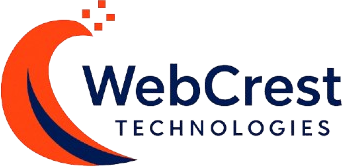
WordPress page builders have revolutionized the way websites are created—especially for users without coding experience. With just drag-and-drop functionality, you can build custom layouts and interactive designs in minutes. But with so many options available, which one is best for your needs? In this post, we’ll compare the most popular WordPress page builders to help you make an informed decision.
🧱 What is a WordPress Page Builder?
A WordPress page builder is a plugin or tool that allows users to create, customize, and manage content layouts visually, without writing code. These builders offer pre-made templates, blocks, and elements that simplify the design process.
🔍 Top WordPress Page Builders Compared
1. Elementor
- Ease of Use: Excellent for beginners
- Features: Live editing, responsive controls, widgets, template library
- Pros: Free version available, fast interface, strong community
- Cons: Can get heavy with too many widgets/plugins
Best for: Small businesses, freelancers, and advanced users wanting full design control.
2. Divi (by Elegant Themes)
- Ease of Use: Smooth drag-and-drop builder
- Features: Inline editing, visual interface, A/B testing, global elements
- Pros: Lifetime pricing option, integrated theme
- Cons: Slightly slower interface, tied to Divi theme ecosystem
Best for: Agencies or users looking for powerful design control with marketing tools.
3. Beaver Builder
- Ease of Use: Extremely clean and stable
- Features: Frontend editing, pre-designed templates, developer-friendly
- Pros: Lightweight code, works with any theme
- Cons: Fewer design elements compared to others
Best for: Developers or users prioritizing speed and simplicity over flashy effects.
4. WPBakery Page Builder
- Ease of Use: Familiar but outdated for many users
- Features: Backend and frontend editing, grid builder
- Pros: Compatible with many themes
- Cons: Slower performance, cluttered UI
Best for: Legacy users or those using a theme that bundles WPBakery.
5. Gutenberg (WordPress Block Editor)
- Ease of Use: Clean and improving rapidly
- Features: Block-based layout, reusable blocks, no plugin required
- Pros: Built into WordPress core, lightweight
- Cons: Still catching up with features of other builders
Best for: Bloggers, minimalist sites, or developers working within WordPress default tools.
🚀 Which One Should You Choose?
Choosing the right builder depends on your needs. If you’re a beginner, Elementor offers a great mix of ease and flexibility. For agencies, Divi packs more advanced tools. If speed and clean code matter most, Beaver Builder is a solid bet. And if you’re sticking close to WordPress defaults, Gutenberg is the way forward.
✅ Conclusion
WordPress page builders make web design accessible and efficient, but not all tools are created equal. Think about your design needs, skill level, and performance goals before committing. At Uplift Web Solution, we help clients choose and customize the right page builder for long-term success.


